Find Help
More Items From Ergsy search
-
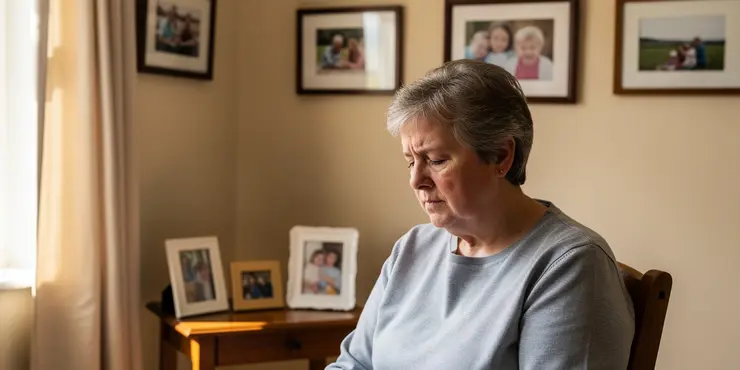
Child Bereavement
Relevance: 100%
-

What is bereavement leave?
Relevance: 68%
-
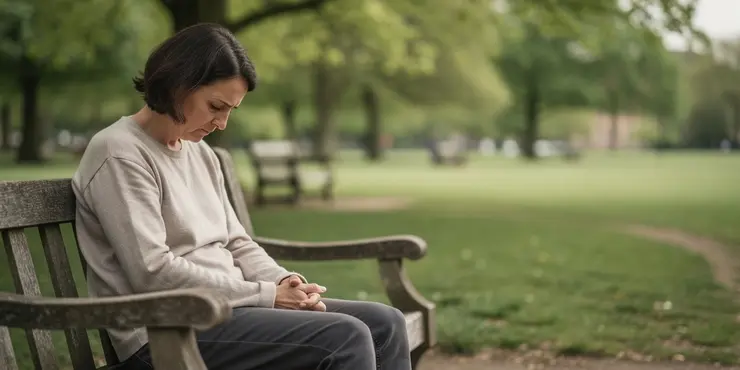
Am I entitled to Bereavement Leave?
Relevance: 66%
-
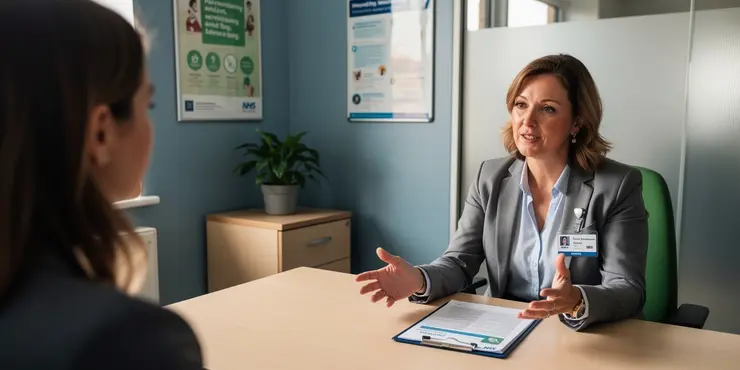
Do I get paid for bereavement leave?
Relevance: 66%
-

Can I be denied bereavement leave?
Relevance: 66%
-

Can I extend my bereavement leave?
Relevance: 64%
-
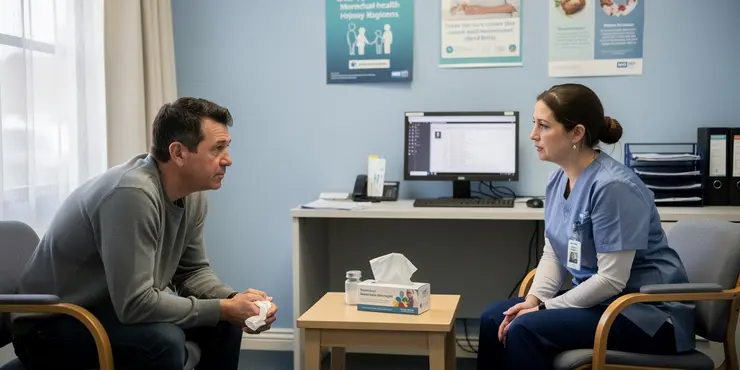
Can bereavement leave be counted against my PTO?
Relevance: 64%
-

Are part-time employees entitled to bereavement leave?
Relevance: 63%
-

Does bereavement leave cover travel costs?
Relevance: 62%
-

How many days of bereavement leave can I take?
Relevance: 61%
-
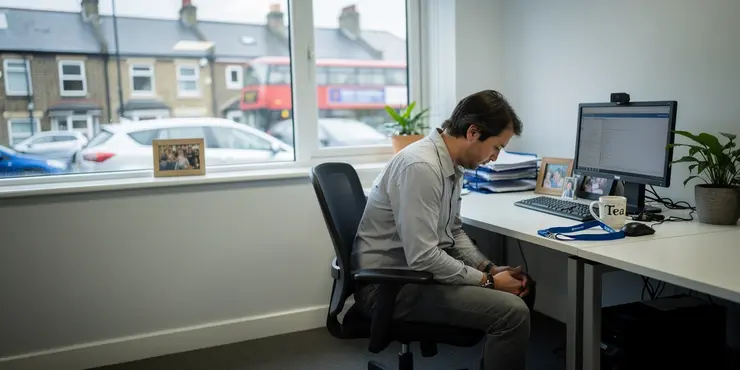
What documentation might I need for bereavement leave?
Relevance: 59%
-

Can bereavement leave be taken consecutively with other leaves?
Relevance: 59%
-

Can I take bereavement leave for the death of a close friend?
Relevance: 58%
-

Is bereavement leave the same as compassionate leave?
Relevance: 57%
-

How should I request bereavement leave?
Relevance: 57%
-

Does bereavement leave cover funerals for cultures or religions with extended mourning periods?
Relevance: 51%
-
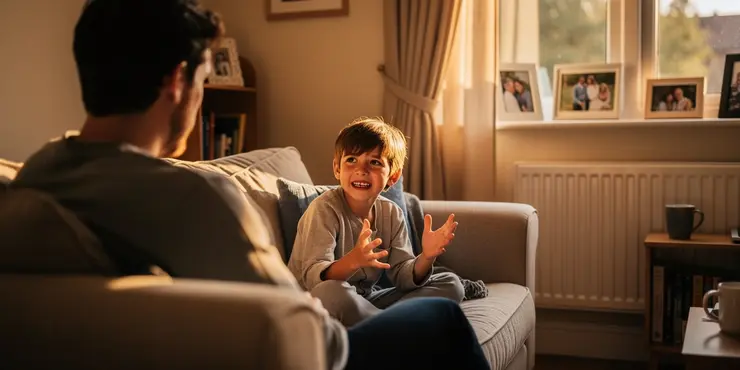
My Stammering Child
Relevance: 42%
-
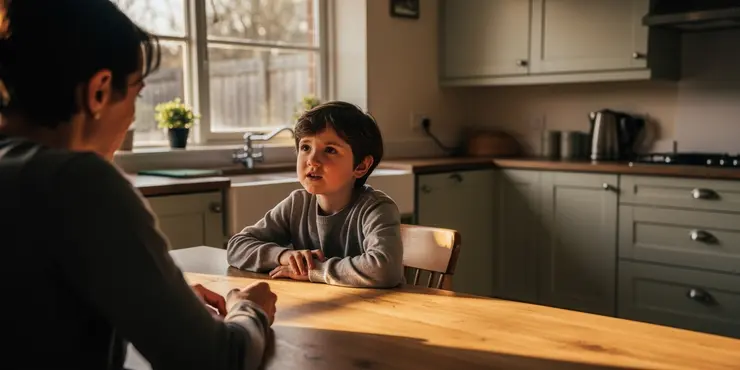
Navigating Child Custody Laws in the UK
Relevance: 38%
-
Is screening painful or risky for my child?
Relevance: 38%
-
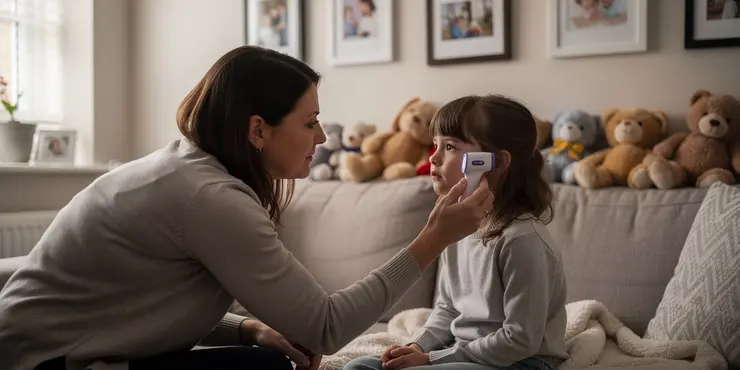
Caring for a child with fever | NHS
Relevance: 38%
-
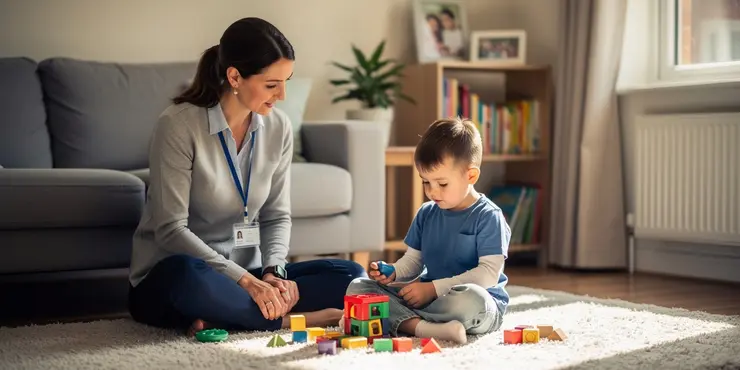
Child Care Proceedings | Family Law
Relevance: 37%
-
What should I do if I suspect my child is being groomed?
Relevance: 37%
-

Can my child get braces on the NHS?
Relevance: 36%
-
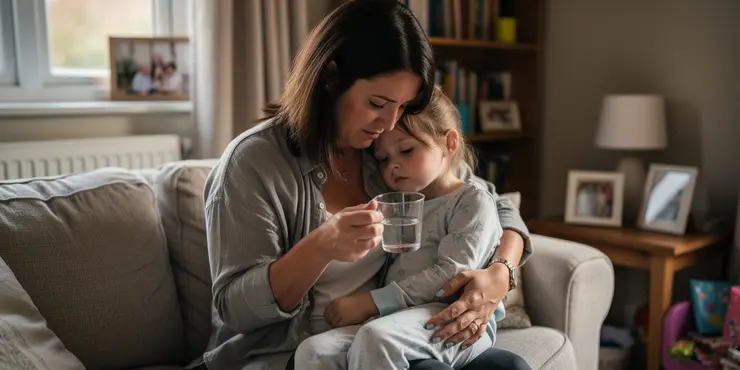
My child has vomiting and diarrhoea - what do I do?
Relevance: 36%
-
How can I tell if my child is being groomed?
Relevance: 36%
-
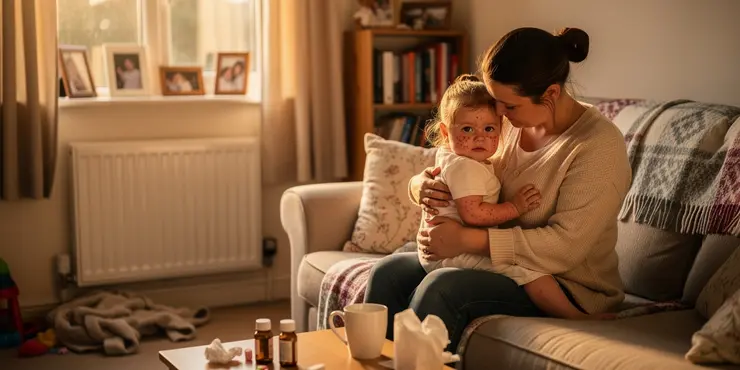
How to Keep a Child With Chickenpox Comfortable
Relevance: 36%
-

Navigating Child Custody and Visitation Rights in Modern UK
Relevance: 36%
-
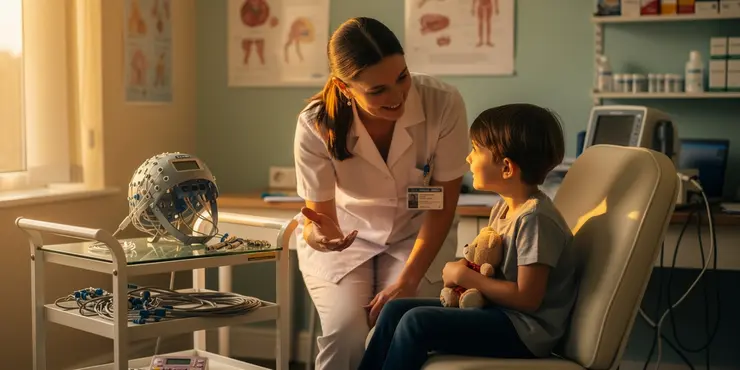
What happens when my child has an EEG?
Relevance: 35%
-
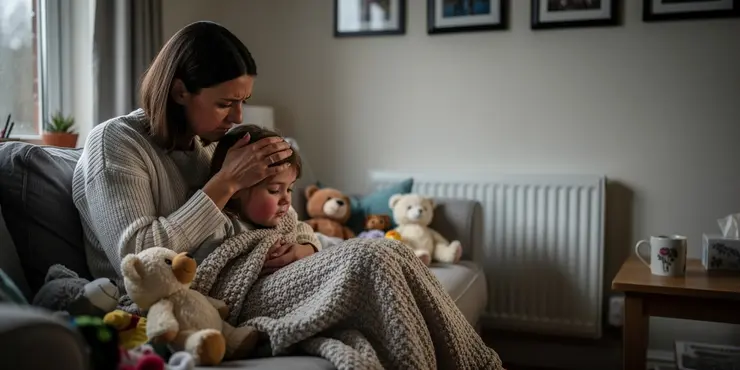
Advice if your child has... A High temperature
Relevance: 35%
-
What happens if my child's screening results are positive?
Relevance: 34%
-
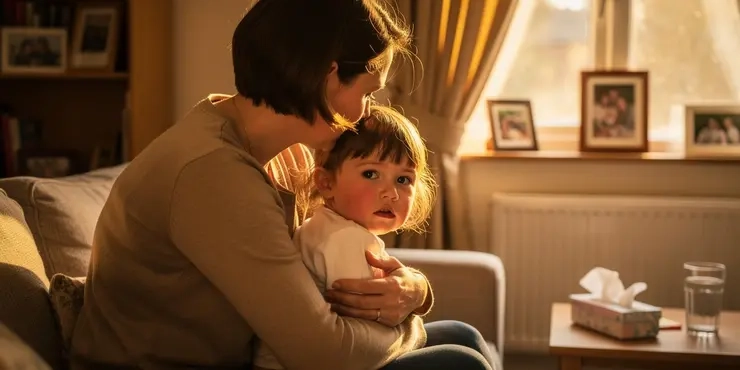
What to do when your child has... croup
Relevance: 34%
-
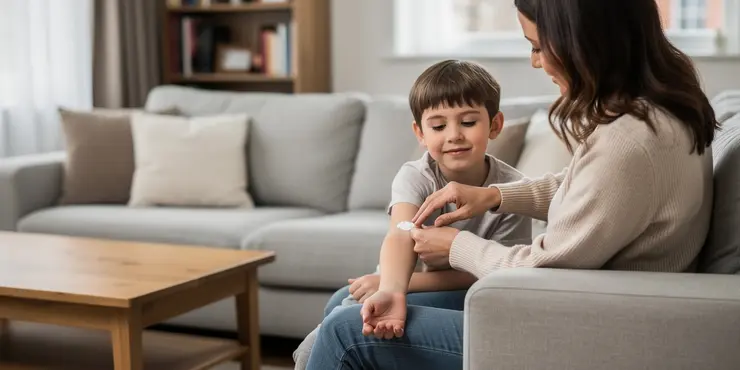
Managing and treating your child's eczema
Relevance: 34%
-
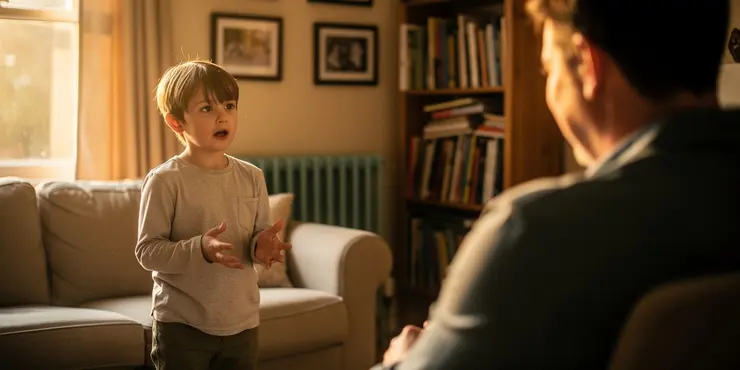
Stammering myth 4: You should ignore a child's stammer
Relevance: 34%
-
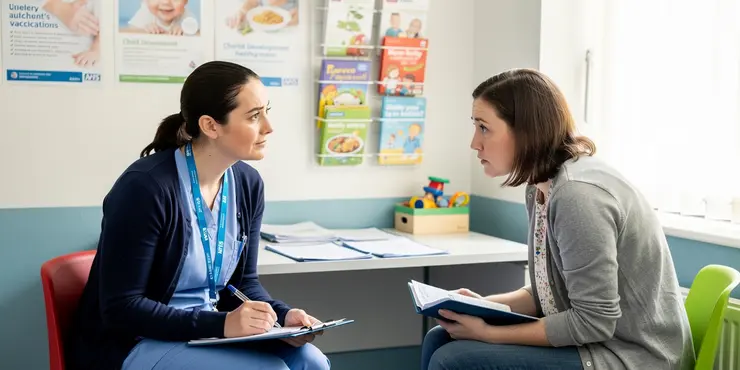
Should I test my child for high blood pressure?
Relevance: 34%
-
How can I educate my child to recognize grooming behaviors?
Relevance: 34%
-
Should I limit my child's internet usage to prevent grooming?
Relevance: 34%
-

Eczema - Your child's appointment | Dermatology | Paediatrics
Relevance: 34%
-
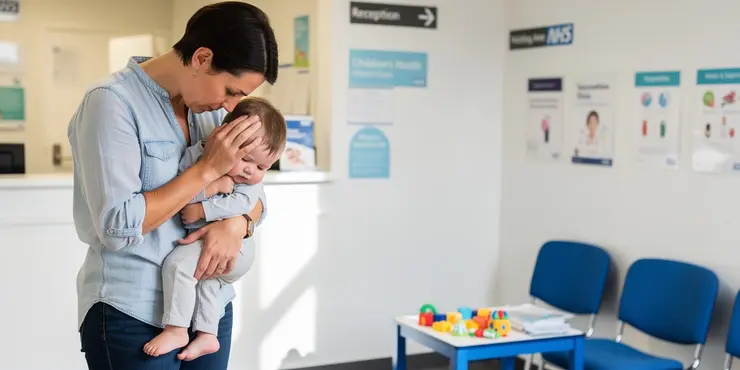
How do I treat my child's cold? (9 - 30 months) | NHS
Relevance: 33%
-
What are the common signs that a child might be a victim of grooming?
Relevance: 33%
-
How have child custody laws changed in 2026?
Relevance: 33%
The sadness of losing a child
Losing a child is an unimaginable and profound tragedy that can shatter the lives of parents and their families. It defies the natural order of life, as parents typically expect to outlive their children. The grief experienced when a child is lost is often described as one of the most agonizing and enduring forms of sorrow.
Parents who have lost a child grapple with intense emotional pain, guilt, and a sense of emptiness that can last a lifetime. They may experience overwhelming sadness, anger, and an unrelenting yearning for their child. The dreams and hopes they had for their offspring are abruptly shattered, leaving a void that cannot be filled.
Coping with the loss of a child is a highly individual journey, and there is no right or wrong way to grieve. It's essential for grieving parents to seek support from friends, family, or grief counseling to help navigate their emotions and find a path toward healing.
Memories of the lost child can both comfort and torment parents, and finding ways to honor their child's memory can provide solace. Many parents also become advocates for causes related to the circumstances of their child's passing, channeling their grief into meaningful efforts to help others.
When a child loses someone close
Child bereavement is a profoundly unique experience compared to that of adults. Children and adults process grief differently due to their varying developmental stages, emotional capacities, and understanding of death.
Children often lack the cognitive and emotional maturity to fully comprehend the finality of death. They may have questions, misconceptions, or magical thinking about the deceased person's return. This can lead to confusion, fear, and a sense of abandonment.
Children may struggle to express their grief verbally, instead manifesting it through behavioral changes, regression, or physical symptoms. They may exhibit sadness, anger, or guilt in unpredictable ways, making it challenging for adults to recognize their pain.
Moreover, children depend on caregivers for emotional support and stability, and a significant loss can disrupt their sense of security. Their grieving process may be influenced by how adults around them cope with grief. It's essential for adults to create an open, safe, and empathetic environment for children to express their feelings and ask questions.
Children also experience grief over a longer duration, as they revisit their loss during various developmental stages. Understanding that their needs may change over time is crucial in providing ongoing support.
Child Bereavement
Understanding Child Bereavement
Child bereavement refers to the grief that children experience following the death of a loved one. This process can be particularly challenging because children often lack the emotional tools and life experience needed to understand and cope with loss. For families in the United Kingdom, recognizing the unique aspects of child bereavement is crucial in providing the appropriate support and resources.Common Reactions to Bereavement in Children
Children's responses to bereavement vary based on their age, emotional development, and the nature of their relationship with the deceased. Younger children may struggle with the permanence of death and might experience anxiety, regression in behavior, or changes in sleep patterns. Adolescents, on the other hand, might show signs of anger, withdrawal, or even risk-taking behaviors as they process their grief. It is important for caregivers to be observant and understanding, helping children express their feelings in a safe environment.Support Systems and Resources in the UK
Numerous organizations in the UK specialize in supporting children through bereavement. For example, Child Bereavement UK offers various resources, including counseling, support groups, and educational materials for both children and adults. Schools also play a critical role and can provide additional support through pastoral care and access to bereavement professionals.Role of Schools and Educational Settings
In the UK, schools are often the first place children return to after a loss. Teachers and school counselors can be instrumental in providing a sense of routine and stability. Schools can integrate bereavement awareness into their education systems, ensuring that staff are trained to address and support the emotional needs of grieving children. Bereavement policies within schools can help create a supportive environment for students coping with loss.How to Talk to Children About Death
Communicating about death with children requires honesty and age-appropriate language. It is important to use clear and concrete terms rather than euphemisms that might confuse them. Encouraging children to ask questions and express their thoughts and feelings candidly can help them navigate their grief. Providing reassurance that their feelings are normal and validating their emotions is essential in fostering an open dialogue.Conclusion
Child bereavement is a complex and sensitive issue, but with the right support systems in place, children can navigate their grief in a healthy and constructive manner. The United Kingdom offers multiple resources and educational support avenues to assist families and children during such challenging times. Understanding and addressing the unique needs of bereaved children can significantly impact their emotional well-being and long-term adjustment.The sadness of losing a child
When parents lose a child, it is a terrible sadness. It can change their lives forever. Parents usually expect to live longer than their children. When this does not happen, it is very hard. The sadness can feel very painful and last a long time.
Parents who have lost a child feel very strong emotions like sadness, guilt, and emptiness. They can feel sad, angry, and miss their child a lot. The dreams they had for their child are gone, leaving them feeling empty.
There is no right or wrong way to feel after losing a child. Everyone is different. It is important to get help from friends, family, or a counselor. This can help them feel better and heal over time.
Remembering the child can be both comforting and painful. Parents can find comfort in honoring their child's memory. Some parents help others by working for causes related to how their child died.
When a child loses someone close
Children feel loss in their own way, which is different from adults. This is because children think and understand differently than adults.
Children may not fully understand that death is permanent. They might have questions or believe the person will come back. This can make them feel confused and scared.
Children may not talk about their feelings easily. Instead, they might show changes in how they act or feel sick. They might be sad, angry, or feel guilty, and it can be hard for adults to see their pain.
Children need grown-ups to help them feel safe and supported. Losing someone can make children feel less secure. How adults around them handle sadness can affect the child’s feelings too. It is important for adults to be caring and open so children can share their feelings and ask questions.
As children grow, they may feel the sadness again at different times. Understanding that their needs change over time is important to help them as they grow.
Child Bereavement
Understanding Child Bereavement
Child bereavement is when a child feels very sad because someone they loved has died. This can be hard for children because they may not understand what has happened. They often don't know how to deal with these big feelings. In the United Kingdom, it is important to help kids by giving them the right support and help.Common Reactions to Bereavement in Children
Children react differently to someone dying, depending on their age and how they are feeling. Younger children might not understand that death is forever. They can feel worried, act younger than their age, or have trouble sleeping. Older children, like teenagers, might feel angry or want to be alone. They might take more risks. It is important for adults to watch how kids are feeling and help them talk about their feelings safely.Support Systems and Resources in the UK
There are many places in the UK that help children who are grieving. Child Bereavement UK is one group that has a lot of help, like talking to a counselor, support groups, and books for kids and adults. Schools are also a place where children can get extra help from teachers and counselors.Role of Schools and Educational Settings
Schools in the UK help children feel normal after someone dies. Teachers and school helpers can make kids feel better by keeping things the same and safe. Schools can teach staff about grief, so they know how to help kids who are sad. Having rules about how to help kids who are grieving makes schools a good place for them.How to Talk to Children About Death
When talking to kids about death, it's good to be clear and use simple words. Avoid complicated words that might confuse them. Let children ask questions and share their feelings. Tell them it's okay to feel sad and that their feelings are normal. This helps them understand and feel better.Conclusion
Child bereavement is difficult, but with the right help, children can learn to handle their sadness in a healthy way. There are many resources and support in the UK to help families and kids during these tough times. Knowing what bereaved children need can really help them feel better and cope with their loss.Frequently Asked Questions
What are the signs that a child might be grieving?
Children may show signs of grief through changes in behaviour, sleep disturbances, regression to younger behaviours, withdrawal from friends and activities, anxiety, and physical complaints like stomach aches or headaches.
How can I support a child who has lost a loved one?
Provide a safe and open environment where they feel comfortable expressing their feelings. Be patient, listen to them, maintain routines, and consider seeking professional help if needed.
Should children attend the funeral of their loved one?
It depends on the child's age and their willingness to attend. Explain what happens at a funeral and let them decide. It's also helpful to have a supportive adult present to care for them if they decide to go.
What should I say to a grieving child?
Be honest and use simple, clear language. Acknowledge their feelings, reassure them that it's okay to be sad, and offer comfort. Avoid using euphemisms that might confuse them.
How do I explain death to a young child?
Explain death using age-appropriate language. Explain that death means that the person’s body has stopped working and they won’t be coming back. Avoid using phrases like 'gone to sleep' which can be confusing.
Is it normal for a child to feel guilty after a loved one dies?
Yes, children might feel irrational guilt or think they somehow caused the death. It’s important to reassure them that they are not to blame and that these feelings are normal.
What resources are available in the UK for child bereavement support?
Organisations like Child Bereavement UK, Winston’s Wish, and Cruse Bereavement Care offer support and resources. Schools and local counselling services can also provide assistance.
How long does grief last for a child?
Grief is a personal experience and can last a different length of time for each child. Some may show signs of grief for months, while others may grieve over years. Support and professional help can guide them through this process.
Should I share my own feelings of grief with my child?
Yes, sharing your feelings in an age-appropriate way can help normalize the grieving process and show them that it's okay to express their emotions.
How can teachers support a grieving student?
Teachers can provide a stable environment, be patient and understanding, offer to talk if the child needs it, and maintain regular communication with the family. Adjustments to workload and a quiet space may also help.
What if a child doesn’t seem to be grieving at all?
Grief isn't always immediately apparent, and children grieve in their own way. They might delay their grief or express it indirectly. It’s important to keep an open line of communication and be patient.
How do I handle my child’s repeated questions about death?
Answer their questions honestly and patiently, even if they ask the same things multiple times. This repetition is a common way for children to process information.
What age-appropriate activities can help a grieving child?
Activities like drawing, memory boxes, storytelling, and commemorating the deceased through rituals or keepsakes can help children express and cope with their grief.
Is it beneficial to connect a grieving child with others who have lost someone?
Yes, connecting with peers who have experienced similar losses can provide comfort and reduce feelings of isolation. Support groups and bereavement programs can facilitate these connections.
When should I seek professional help for my grieving child?
Seek professional help if the child shows signs of prolonged distress, significant changes in behaviour or school performance, withdrawal from activities, or expresses thoughts of self-harm. It’s better to seek help early if you are concerned.
How can you tell if a child is upset because someone has died?
Kids might feel sad in different ways. They might act differently, have trouble sleeping, want to act like they're younger, stop playing with friends or doing things they like, feel worried, or say their tummy or head hurts.
How can I help a child who is sad because someone they love has died?
Here are some ideas to help:
- Listen: Let the child talk about their feelings. It is okay to feel sad.
- Be Honest: Use simple words to explain what has happened. Tell the truth gently.
- Comfort: Give them hugs and say kind words. Show them that you care.
- Routine: Keep their daily activities normal. Routine helps them feel safe.
- Memory Box: Help them make a box with special things that remind them of the loved one.
- Books: Read simple books about loss. Books can help them understand.
- Art: Let them draw or paint to express how they feel.
- Talk to Someone: A counselor can help if the child needs more support.
It is important to be patient and loving. Every child is different, and some need more time to feel better.
Create a place where they feel safe and can talk about their feelings. Be patient, listen carefully, keep regular routines, and think about getting help from a doctor if needed.
Should kids go to the funeral of someone they love?
When someone we love dies, we might have a funeral. A funeral is a special time to say goodbye. But is it okay for kids to go?
It is important to talk with kids about what a funeral is like. Tell them that people will be sad and there might be crying. Explain that it is a time when people share nice stories and remember the person who died.
If a kid wants to go, that is okay. If they do not want to go, that is okay too. Ask them how they feel and listen to what they say. Let them choose.
You can also use things to help explain, like:
- Pictures or drawings
- Storybooks about funerals
- Videos that explain what happens at a funeral
It is good for kids to know it is okay to feel sad and to talk about it.
It depends on how old the child is and if they want to go. Tell them what happens at a funeral and let them choose. It is also good to have an adult they trust with them if they decide to go.
What Can I Say to a Child Who is Sad Because Someone Died?
When talking to a child who is sad because someone has died, use simple words. Be gentle and kind.
You can say:
- "I am here for you."
- "It's okay to feel sad."
- "Do you want to talk about how you feel?"
Listen to them. Give hugs if they want them.
You can also help them by:
- Drawing pictures together to show how they feel.
- Reading a story about feelings.
- Playing a game to make them feel better.
It's important to let them know they are not alone.
Tell the truth and use easy words. Say you know they are feeling sad and it's okay to feel that way. Make them feel better by being there for them. Don't use confusing words that might make them unsure.
How can I talk to a young child about death?
Talking to a child about death can be hard. Use simple words and be gentle.
Here is how you can explain it:
- Say that when someone dies, they do not feel anything anymore.
- Explain that their body stops working and they do not come back.
- Tell the child it is okay to feel sad or confused.
- Listen and answer any questions they might have.
It can help to read a story together about death. You can also draw pictures to help them understand.
Talk about death in a way kids can understand. Say that death means the person's body has stopped working, and they won't come back. Don't say things like 'gone to sleep' because that can be confusing.
Is it okay for a child to feel bad when someone they love dies?
Yes, kids might feel bad or think they caused someone to die. It’s important to tell them it's not their fault and that feeling this way is okay.
Here are some ways to help:
- Talk to them gently.
- Listen to their worries.
- Use simple words to explain.
- Share stories that show they are not to blame.
What help can kids get in the UK when someone they love has died?
When a child loses someone they love, it can be very hard. But there are people and places that can help. Here are some ways to find support:
- Talk to a Teacher: Schools often have people who can listen and help children feel better.
- Visit a Support Group: There are groups where kids can meet others who feel the same way.
- Call a Helpline: Kids can talk to someone who cares by calling a special phone number.
- See a Counselor: A counselor can help kids talk about their feelings and worries.
With these supports, children can find comfort and start to heal.
There are groups that can help, like Child Bereavement UK, Winston’s Wish, and Cruse Bereavement Care. They have support and information for you. Schools and local counseling services can help too.
How long is a child sad when someone dies?
It is normal for a child to feel sad when someone they love dies. This sadness can last for different times for each child. Some children might feel better in a few weeks, and others may feel sad for a longer time.
Every child is different. It's okay to feel sad. Talking about feelings can help. Drawing pictures or writing about the person can also be helpful.
If you or someone you know is feeling very sad for a long time, it is good to talk to a grown-up or someone who can help, like a teacher or a counselor.
Grief is a very personal feeling. It can last for a different amount of time for each child. Some children might feel sad for several months. Others might feel sad for many years. There are people who can help, like friends, family, or professionals.
If a child is grieving, here are some things that might help:
- Talking to someone they trust, like a teacher or family member.
- Drawing pictures about how they feel.
- Writing in a diary or journal.
- Playing with a pet or spending time outside.
- Speaking with a counselor can also be very helpful.
It's okay for children to ask for help. Everyone deals with grief in their own way.
Can I talk to my child about feeling sad when someone dies?
Yes, talking about how you feel can help. It shows others it’s okay to feel sad and talk about it. Make sure to say things in a way everyone can understand.
How can teachers help a sad student who lost someone?
Teachers can be kind and listen. If a student is sad because someone they love has died, teachers can make sure to:
- Talk and Listen: Ask the student how they feel. Listen when they want to talk.
- Be Patient: Give them time to feel better. It can take a while.
- Offer Help: Ask if they need anything special at school.
- Be Understanding: Let them have a break if they feel too sad.
- Encourage Support: Suggest talking to a school counselor or someone they trust.
Teachers can help by showing they care and understand. It’s important to let the student know they are not alone.
Teachers can help by making school a safe place. They should be kind and listen. They can talk with the child's family often. If the child needs less work or a quiet space, teachers can help with that too.
What if a child doesn't seem sad at all?
Grief means feeling very sad when someone is gone. Kids might not show they are sad right away. They might show they are sad in different ways. It's good to talk and listen to them. Be patient.
How can I talk to my child when they ask about death again and again?
When your child asks about death, it's important to stay calm and listen. Here are some ways to help:
- Use simple words to explain.
- Let your child ask questions.
- Be patient. It's okay if they ask the same thing many times.
Talking can help both of you feel better.
Answer their questions honestly and patiently. If they ask the same questions again and again, that is okay. Children often ask the same question to help them understand.
What activities can help a child who is sad?
Doing things like drawing pictures, making memory boxes, telling stories, and using special objects or activities to remember someone who has died can help children deal with their sad feelings.
Is it good for a sad child to meet other kids who are sad too?
When a child loses someone they love, they can feel very sad and alone. Meeting other kids who are also sad because they lost someone can help them feel better.
Talking to others who understand can make a child feel less lonely. They can share stories and feelings with each other.
You can also use pictures, drawings, or simple games to help children talk about their feelings.
It's important that these meetings are safe and have a grown-up there to help. This can be a teacher, counselor, or another caring adult.
Yes, talking to other people who have lost someone can help you feel better. It can make you feel less alone. You can join groups or programs where you meet others who understand what you are going through.
When should I ask for help for my sad child?
Get help from a doctor or a counselor if the child seems upset for a long time. Look for big changes in how they act or do in school, if they stop doing fun things, or talk about hurting themselves. It's good to ask for help soon if you worry about these things.
Useful Links
This website offers general information and is not a substitute for professional advice.
Always seek guidance from qualified professionals.
If you have any medical concerns or need urgent help, contact a healthcare professional or emergency services immediately.
Some of this content was generated with AI assistance. We’ve done our best to keep it accurate, helpful, and human-friendly.
- Ergsy carfully checks the information in the videos we provide here.
- Videos shown by Youtube after a video has completed, have NOT been reviewed by ERGSY.
- To view, click the arrow in centre of video.
- Most of the videos you find here will have subtitles and/or closed captions available.
- You may need to turn these on, and choose your preferred language.
- Go to the video you'd like to watch.
- If closed captions (CC) are available, settings will be visible on the bottom right of the video player.
- To turn on Captions, click settings .
- To turn off Captions, click settings again.
More Items From Ergsy search
-

Child Bereavement
Relevance: 100%
-

What is bereavement leave?
Relevance: 68%
-

Am I entitled to Bereavement Leave?
Relevance: 66%
-

Do I get paid for bereavement leave?
Relevance: 66%
-

Can I be denied bereavement leave?
Relevance: 66%
-

Can I extend my bereavement leave?
Relevance: 64%
-

Can bereavement leave be counted against my PTO?
Relevance: 64%
-

Are part-time employees entitled to bereavement leave?
Relevance: 63%
-

Does bereavement leave cover travel costs?
Relevance: 62%
-

How many days of bereavement leave can I take?
Relevance: 61%
-

What documentation might I need for bereavement leave?
Relevance: 59%
-

Can bereavement leave be taken consecutively with other leaves?
Relevance: 59%
-

Can I take bereavement leave for the death of a close friend?
Relevance: 58%
-

Is bereavement leave the same as compassionate leave?
Relevance: 57%
-

How should I request bereavement leave?
Relevance: 57%
-

Does bereavement leave cover funerals for cultures or religions with extended mourning periods?
Relevance: 51%
-

My Stammering Child
Relevance: 42%
-

Navigating Child Custody Laws in the UK
Relevance: 38%
-
Is screening painful or risky for my child?
Relevance: 38%
-

Caring for a child with fever | NHS
Relevance: 38%
-

Child Care Proceedings | Family Law
Relevance: 37%
-
What should I do if I suspect my child is being groomed?
Relevance: 37%
-

Can my child get braces on the NHS?
Relevance: 36%
-

My child has vomiting and diarrhoea - what do I do?
Relevance: 36%
-
How can I tell if my child is being groomed?
Relevance: 36%
-

How to Keep a Child With Chickenpox Comfortable
Relevance: 36%
-

Navigating Child Custody and Visitation Rights in Modern UK
Relevance: 36%
-

What happens when my child has an EEG?
Relevance: 35%
-

Advice if your child has... A High temperature
Relevance: 35%
-
What happens if my child's screening results are positive?
Relevance: 34%
-

What to do when your child has... croup
Relevance: 34%
-

Managing and treating your child's eczema
Relevance: 34%
-

Stammering myth 4: You should ignore a child's stammer
Relevance: 34%
-

Should I test my child for high blood pressure?
Relevance: 34%
-
How can I educate my child to recognize grooming behaviors?
Relevance: 34%
-
Should I limit my child's internet usage to prevent grooming?
Relevance: 34%
-

Eczema - Your child's appointment | Dermatology | Paediatrics
Relevance: 34%
-

How do I treat my child's cold? (9 - 30 months) | NHS
Relevance: 33%
-
What are the common signs that a child might be a victim of grooming?
Relevance: 33%
-
How have child custody laws changed in 2026?
Relevance: 33%


